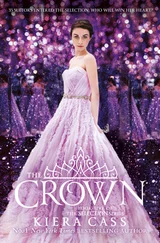Thomas Cook - The Crime of Julian Wells
Здесь есть возможность читать онлайн «Thomas Cook - The Crime of Julian Wells» весь текст электронной книги совершенно бесплатно (целиком полную версию без сокращений). В некоторых случаях можно слушать аудио, скачать через торрент в формате fb2 и присутствует краткое содержание. Год выпуска: 2012, ISBN: 2012, Издательство: Grove Press, Жанр: Криминальный детектив, на английском языке. Описание произведения, (предисловие) а так же отзывы посетителей доступны на портале библиотеки ЛибКат.
- Название:The Crime of Julian Wells
- Автор:
- Издательство:Grove Press
- Жанр:
- Год:2012
- ISBN:9780802194589
- Рейтинг книги:5 / 5. Голосов: 1
-
Избранное:Добавить в избранное
- Отзывы:
-
Ваша оценка:
- 100
- 1
- 2
- 3
- 4
- 5
The Crime of Julian Wells: краткое содержание, описание и аннотация
Предлагаем к чтению аннотацию, описание, краткое содержание или предисловие (зависит от того, что написал сам автор книги «The Crime of Julian Wells»). Если вы не нашли необходимую информацию о книге — напишите в комментариях, мы постараемся отыскать её.
The Crime of Julian Wells — читать онлайн бесплатно полную книгу (весь текст) целиком
Ниже представлен текст книги, разбитый по страницам. Система сохранения места последней прочитанной страницы, позволяет с удобством читать онлайн бесплатно книгу «The Crime of Julian Wells», без необходимости каждый раз заново искать на чём Вы остановились. Поставьте закладку, и сможете в любой момент перейти на страницу, на которой закончили чтение.
Интервал:
Закладка:
By then I’d learned a few things about Eduardo, as well, most notably that he had never been a priest but had used that disguise, along with false papers, to move more or less undetected throughout Europe. Those movements had interested Julian, he said, and he had questioned him about them quite relentlessly. It was during those conversations that Eduardo had inquired about Julian’s earliest travels. In response, Julian had first described the happy journeys he’d taken with his father and Loretta; then, quite reluctantly, according to Eduardo, he had at last spoken of Argentina.
“It was not a happy place for Julian,” Eduardo told me. “He told me that Buenos Aires was a place that swarmed with agents and secret agents.”
“That’s true,” I said. “The Dirty War was still going on when we were there.”
Eduardo nodded. “Julian said a bad thing happened there. It was to a woman he knew.”
“Our guide, yes,” I said. “While we were in Buenos Aires, she disappeared. She was never found.”
“And Julian loved this woman?” Eduardo answered.
“No,” I answered. “At least not romantically. But he cared for her.”
Eduardo looked puzzled. “Then there was perhaps another woman in his life?”
“Not one he ever spoke of,” I said. “Why do you ask?”
“Because Julian seemed like a man betrayed,” Eduardo said.
“In what way?” I asked.
“In the way of one who cannot forget his betrayal,” Eduardo said. “For most men, it is a woman who leaves this stain. Perhaps this was not so with Julian.”
He was silent for a moment, clearly thinking of Julian. At last he said, “Julian told me that on the walls of Russian prison cells, the prisoners of the gulag had written one word more than any other. It was not what you would expect it to be, this word. It was not mother or father or God .” He seemed once again to be with my old friend, peering into the gravity of his face. “It was zachem .”
“What does zachem mean?” I asked.
“It means ‘why.’” Eduardo answered. His gaze became quite quizzical, but with a somberness that deepened it. “I think this was written also in Julian’s mind. And that it was written there by betrayal.”
14
Later that night, sleepless in my bed, I remembered Julian during our flight to Buenos Aires, how boyishly excited he was at the time, and how different from the man he later became, isolated and reclusive, the habitue of a Pigalle bar, talking of evil women who brilliantly disguised their vile crimes, with zachem, as Eduardo said, somehow carved into his mind.
Now, recalling the eerie sensation I felt at his mention of this word, I remembered my first meeting with Julian after he returned from France with the completed manuscript of The Terror and, in particular, a remark he made during our conversation, the fact that he considered deception to be life’s cruelest act. El Cepa had deceived his neighbors into believing he was dead. The German soldiers had deceived the villagers of Oradour into believing they were only to have their identities checked. La Meffraye had deceived the children she brought to Gilles de Rais for slaughter.
“So is that your theme, Julian?” I asked him. “Deception?”
I sensed a defensive hardening within him at that moment, a wall going up. He glanced about and looked at his hands before he said, “I often think of something Thoreau wrote, that although children kill frogs in play, the frogs die in earnest.”
Odd though this remark was, it seemed like an opening up, a chance to speak of whatever was so clearly troubling him, but in a moment of supreme insensitivity, I became pedantic.
“Thoreau took that from Plutarch,” I told him in a little show of erudition, “who took it from Bion.”
Julian nodded. “We’re all thieves, I suppose,” he said. “Spies and secret agents.”
“Magicians of manipulation,” Rene said the next morning when we had breakfast together in the hotel dining room. “That’s what Julian called spies and secret agents.”
“He told Eduardo that Buenos Aires had been full of such people when we were there,” I said. “Which it probably was, though Julian couldn’t have known much about such things.”
“Then why does what he said trouble you?” Rene asked. “I can see that it does.”
And he was right. Even now, I suddenly felt a twinge of uneasiness, the sense that I could no longer be certain of what Julian had or had not known about anything.
“It troubles me because Julian seems to have believed that he was betrayed at some point in his life,” I said. “At least that’s what Eduardo told me. And he seemed quite sure of it.”
I related the memory that had returned to me the night before, the vaguely enigmatic conversation I’d had with Julian the day he turned in the manuscript of The Terror, how troubled he looked when he talked briefly about deception as the chief of crimes, the way it seemed to open the door into some darker room.
“He never worked on a book about spies, did he?” I asked. “I mean, for all his talk about spies and agents, he never wrote about them.”
“No, he didn’t,” Rene said. He lit his usual after-breakfast cigarette. “I think he was not so much interested in spies. But, as you say, perhaps in disguise he was interested. We spoke of this from time to time. Deception was something I knew about from my time in Algiers. They were great deceivers, those terrorists in Algeria. I told Julian this. They passed codes during prayers, reciting the Koran but making a mistake. The mistake was the code.” He laughed. “And sometimes even their ailments they used as code. A stomach problem was a man who got scared and had to drop out of a plot. A headache was a new development or maybe some technical matter that had to be figured out before those fucking bastards could blow up the next building or shoot the next policemen.”
He laughed. “Half the time, it seemed like child’s play.”
“Child’s play,” I repeated, struck by the fact that so dangerous an endeavor could be thought of in such a way.
Rene took a long draw on his cigarette. “Child’s play, yes,” he said. “Julian knew this. He even spoke of Mata Hari in this way. That she was just a woman playing a game. Until they shot her, of course. He said once, ‘But it is no longer a game when the bullet strikes.’” He looked at me quite starkly. “Julian believed they do many horrible things, the ones who don’t grow up. Not to grow up, he said, was a kind of crime.”
“What did he mean by that?”
Rene crushed out his cigarette with a violence that seemed to come from something deep within him. “We were talking about Algeria, those girls who planted bombs. I say to him, they were like kids in a playground, those terrorists. Only throwing bombs instead of balls.”
Suddenly, he stopped, and I saw that this memory had brought something abruptly to mind.
“What is it, Rene?” I asked.
With a curious gravity, Rene said, “He looked very strange, Julian. When I said this to him. He looked like maybe this was a truth he knew and which he did not like.”
“What did he say?”
“The thing I told you, that not to grow up was maybe also a crime,” Rene answered.
He sat back, lit another cigarette, and drew in several deep puffs before speaking. “He was a sad fellow, Julian.”
“Maybe he was a classic romantic,” I said. “In his youth, he wanted to change the world.”
Rene shook his head. “No, Julian had clear eyes. Once he said to me, ‘Do you know what love is, Rene? A failure of perspective.’” He shifted slightly. “Such things are not said by romantics.”
Читать дальшеИнтервал:
Закладка:
Похожие книги на «The Crime of Julian Wells»
Представляем Вашему вниманию похожие книги на «The Crime of Julian Wells» списком для выбора. Мы отобрали схожую по названию и смыслу литературу в надежде предоставить читателям больше вариантов отыскать новые, интересные, ещё непрочитанные произведения.
Обсуждение, отзывы о книге «The Crime of Julian Wells» и просто собственные мнения читателей. Оставьте ваши комментарии, напишите, что Вы думаете о произведении, его смысле или главных героях. Укажите что конкретно понравилось, а что нет, и почему Вы так считаете.












